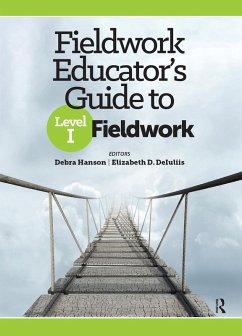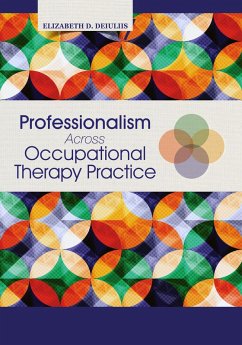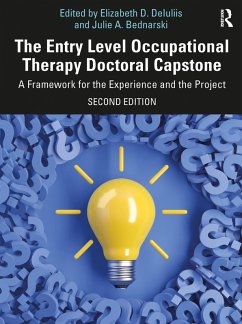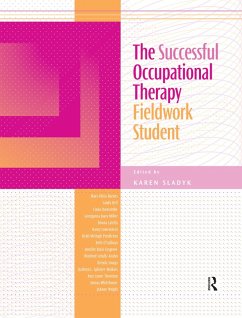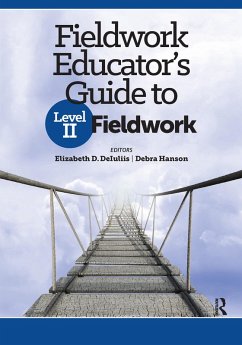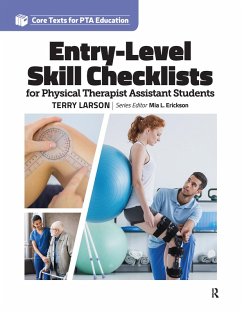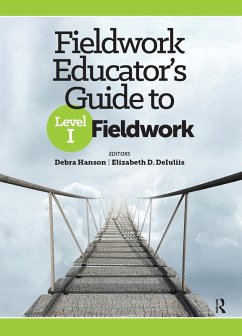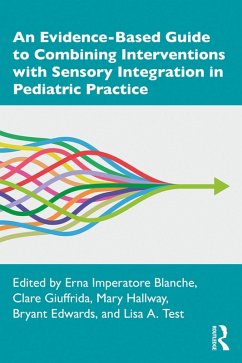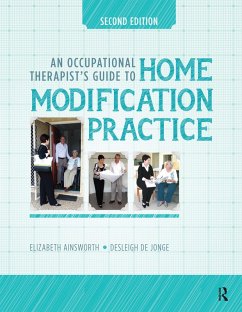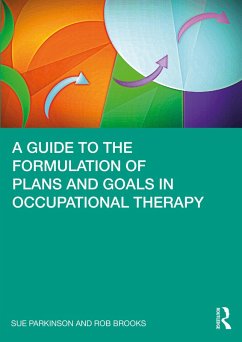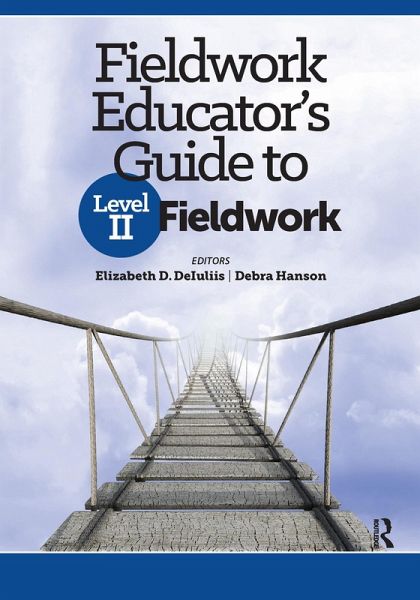
Fieldwork Educator's Guide to Level II Fieldwork (eBook, PDF)
Versandkostenfrei!
Sofort per Download lieferbar
52,95 €
inkl. MwSt.

PAYBACK Punkte
26 °P sammeln!
A new, comprehensive resource for fieldwork educators and academic fieldwork coordinators, Fieldwork Educator's Guide to Level II Fieldwork provides a blueprint for designing, implementing, and managing Level II fieldwork programs for occupational therapy and occupational therapy assistant students across practice settings.Drawing from the expertise of renowned individuals in the field, Drs. Elizabeth D. DeIuliis and Debra Hanson provide the tools for fieldwork educators and academic fieldwork coordinators to put together learning frameworks, educational theories, and clinical instructional te...
A new, comprehensive resource for fieldwork educators and academic fieldwork coordinators, Fieldwork Educator's Guide to Level II Fieldwork provides a blueprint for designing, implementing, and managing Level II fieldwork programs for occupational therapy and occupational therapy assistant students across practice settings.
Drawing from the expertise of renowned individuals in the field, Drs. Elizabeth D. DeIuliis and Debra Hanson provide the tools for fieldwork educators and academic fieldwork coordinators to put together learning frameworks, educational theories, and clinical instructional techniques within and outside occupational therapy in order to create and maintain high-quality Level II learning experiences. Fieldwork Educator's Guide to Level II Fieldwork challenges fieldwork educators and academic fieldwork coordinators to shift their mindset to facilitating skill acquisition and to adjust their teaching approach to match the learning needs and developmental level of the student.
Designed to meet the definition of Level II fieldwork according to the 2018 Accreditation Council for Occupational Therapy Education standards, and in response to common pitfalls and challenges in clinical education today, Fieldwork Educator's Guide to Level II Fieldwork is the go-to guide for the busy practitioner and academic fieldwork coordinator.
What is included in Fieldwork Educator's Guide to Level II Fieldwork:
Fieldwork Educator's Guide to Level II Fieldwork can be used as a standalone resource or as a complement to Fieldwork Educator's Guide to Level I Fieldwork, which was designed in-tandem with this text to holistically address Levels I and II fieldwork education.
Drawing from the expertise of renowned individuals in the field, Drs. Elizabeth D. DeIuliis and Debra Hanson provide the tools for fieldwork educators and academic fieldwork coordinators to put together learning frameworks, educational theories, and clinical instructional techniques within and outside occupational therapy in order to create and maintain high-quality Level II learning experiences. Fieldwork Educator's Guide to Level II Fieldwork challenges fieldwork educators and academic fieldwork coordinators to shift their mindset to facilitating skill acquisition and to adjust their teaching approach to match the learning needs and developmental level of the student.
Designed to meet the definition of Level II fieldwork according to the 2018 Accreditation Council for Occupational Therapy Education standards, and in response to common pitfalls and challenges in clinical education today, Fieldwork Educator's Guide to Level II Fieldwork is the go-to guide for the busy practitioner and academic fieldwork coordinator.
What is included in Fieldwork Educator's Guide to Level II Fieldwork:
- Expansive overviews of supervision models and vignettes illustrating use across practice settings
- Examples and templates to construct a learning plan, site-specific learning objectives, orientation, weekly schedules, and learning contracts
- Tools and strategies to uniquely develop and foster clinical reasoning in fieldwork
- Models for dually approaching supervision and mentorship
- Strategies for addressing unique student learning and supervision needs
Fieldwork Educator's Guide to Level II Fieldwork can be used as a standalone resource or as a complement to Fieldwork Educator's Guide to Level I Fieldwork, which was designed in-tandem with this text to holistically address Levels I and II fieldwork education.
Dieser Download kann aus rechtlichen Gründen nur mit Rechnungsadresse in A, B, BG, CY, CZ, D, DK, EW, E, FIN, F, GR, HR, H, IRL, I, LT, L, LR, M, NL, PL, P, R, S, SLO, SK ausgeliefert werden.




